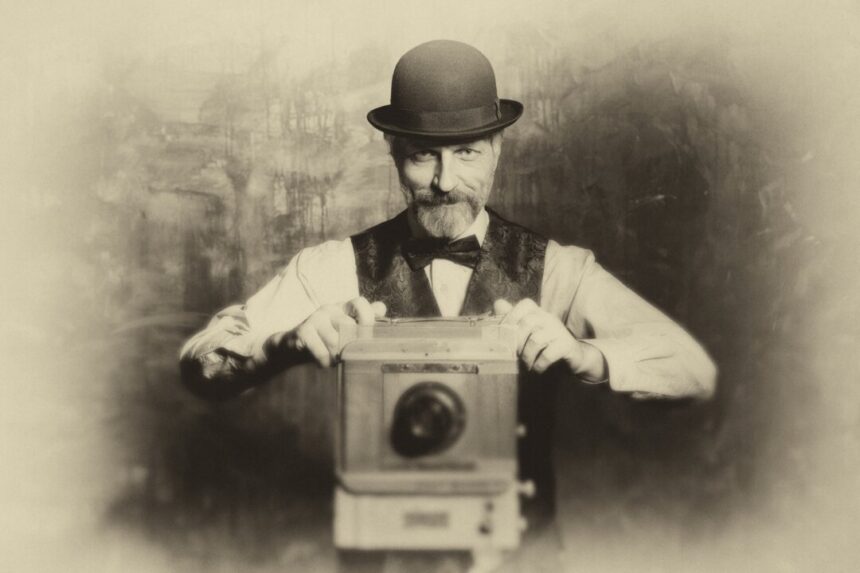The family archives contain a photo of my extended family spanning many generations. The eldest members are seated in the front row, with their children behind them and the young adults in the back row. The patriarch, my great-great-grandfather, stands out in the picture, wearing a medal from the Civil War and a look of bitterness on his face. The photo captures a moment in time when new technology, like motor cars, was shaping the younger generation and instilling them with pride.
The back row of the photo, where the young men in driving hats exude confidence, reflects the impact of technological innovation on their self-perception. They believed that being drivers set them apart from previous generations, and they wore their hats with pride.
However, the photo also serves as a reminder of the unpredictability of the future. Just as these young men could not foresee the economic depression and global conflicts that lay ahead, today’s millennials and Gen Z face challenges and uncertainties despite growing up in an era of technological advancement.
The parallels between the past and present highlight the importance of learning from history and understanding that change and adversity are inevitable. As we navigate economic challenges and societal shifts, it becomes essential to reassess our beliefs and values, acknowledging that the lessons of the past can guide us through uncertain times. The notion that success could be achieved simply by striking a pose, having the right attitude, and associating with the right crowd is fading away. It feels like a betrayal to many, especially the younger generation who are now seeking something more authentic. They hold their parents accountable and feel let down by a world that did not live up to the illusions of their upbringing.
For Gen Z and millennials, this era is akin to the Greater Depression, where they are realizing that the reality is not as rosy and the economy not as miraculous as they once believed. Social media cannot offer salvation, just like being the first to drive did not shield the youth of 1924 from the hardships of the 1930s. They are now coming to terms with the fact that human nature and the fundamentals of reality remain unchanged, despite technological advancements.
It is time to heed the wisdom of the elders, to learn from their experiences, and to cherish the guidance they provide. Their stories and lessons hold valuable insights for the future, more so than any advice from tech giants or media moguls. The wisdom of the past is timeless, and history is a continuous source of knowledge.
The views expressed in this article are the author’s opinions and may not necessarily align with those of The Epoch Times.
Source link




